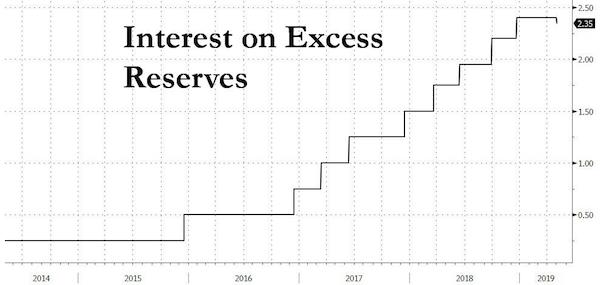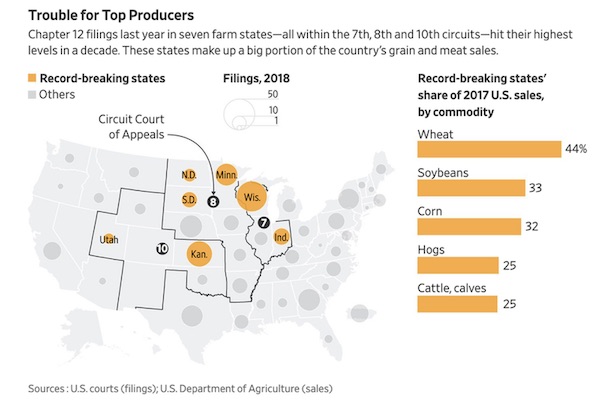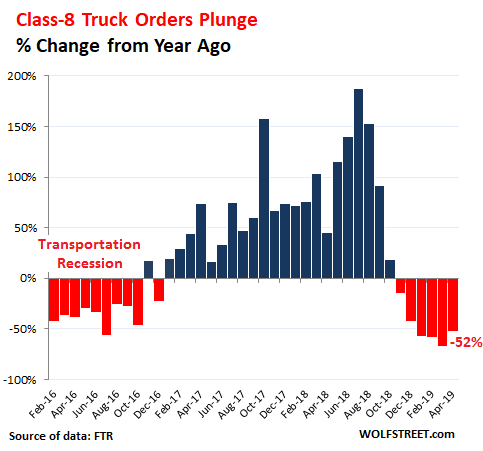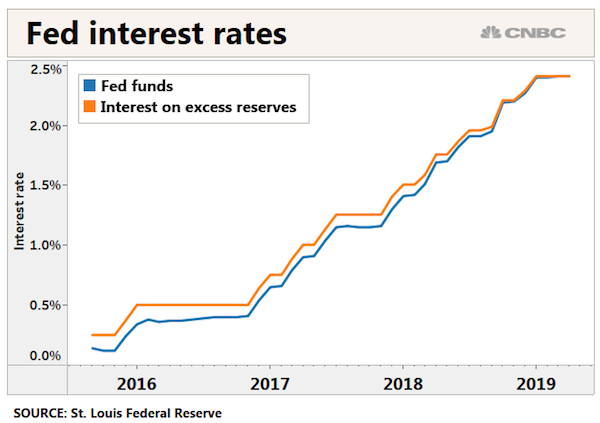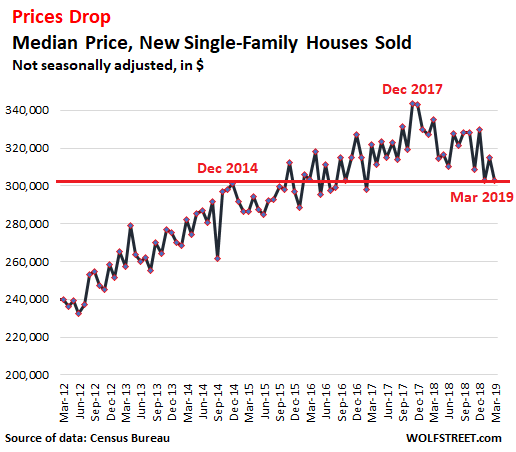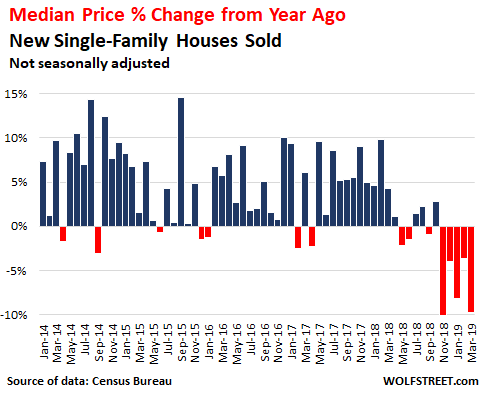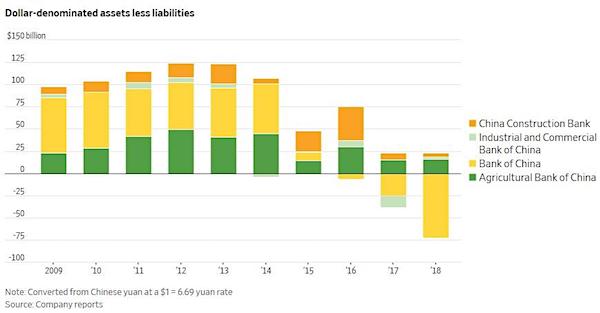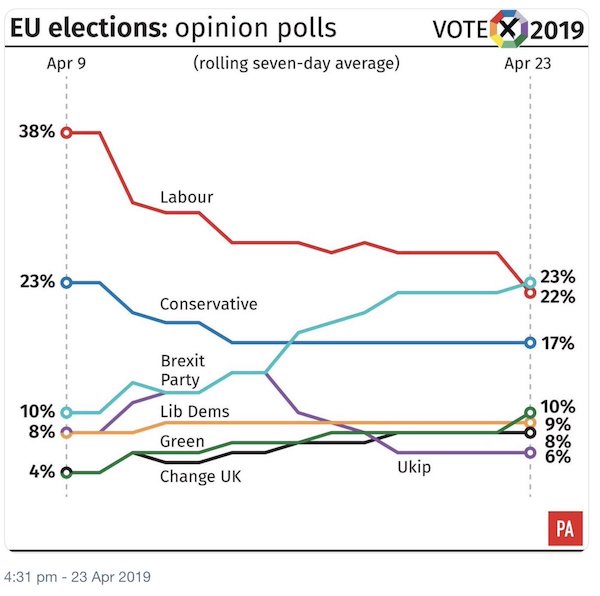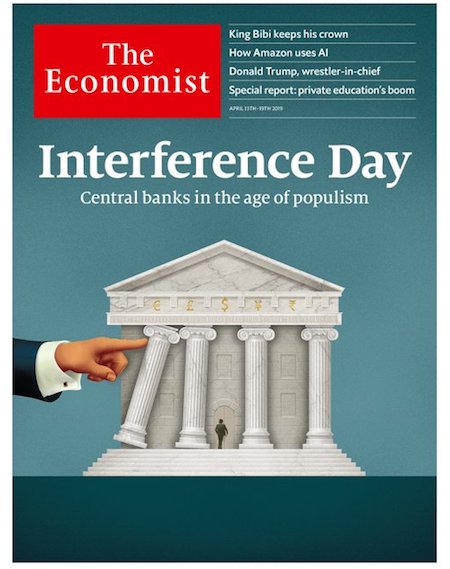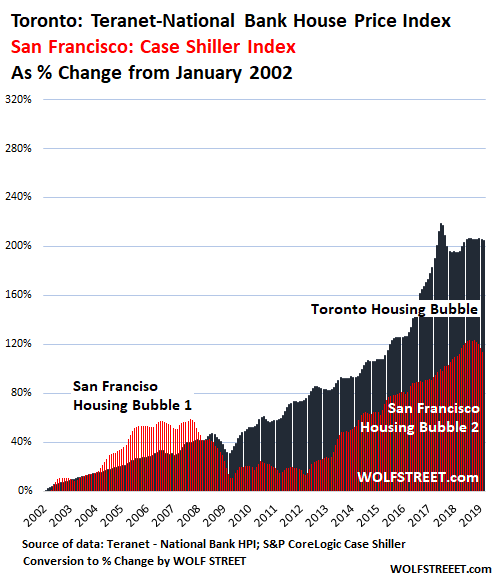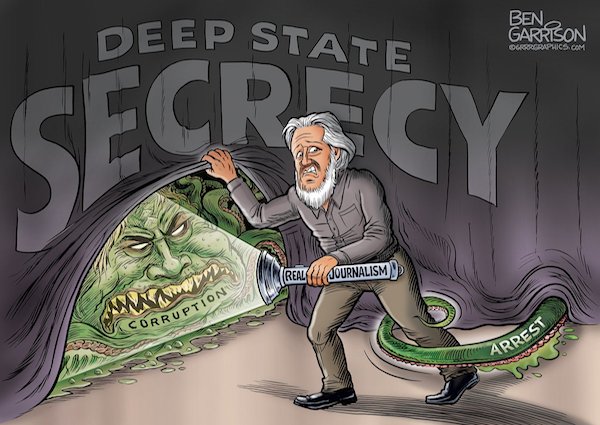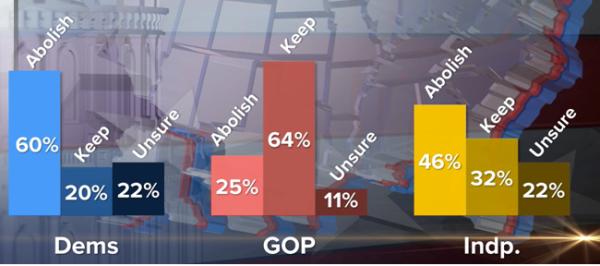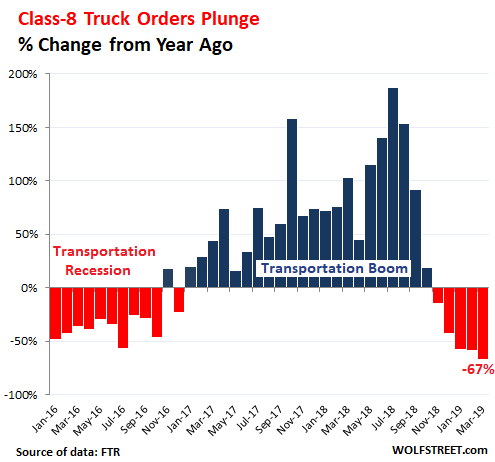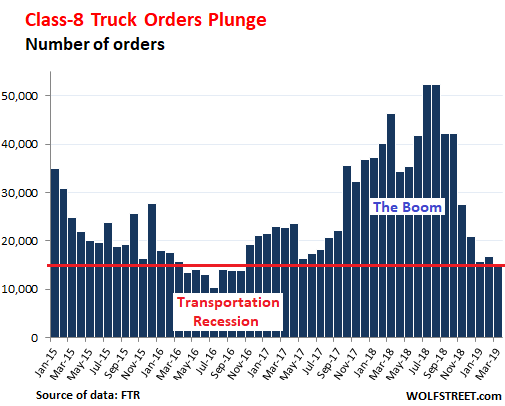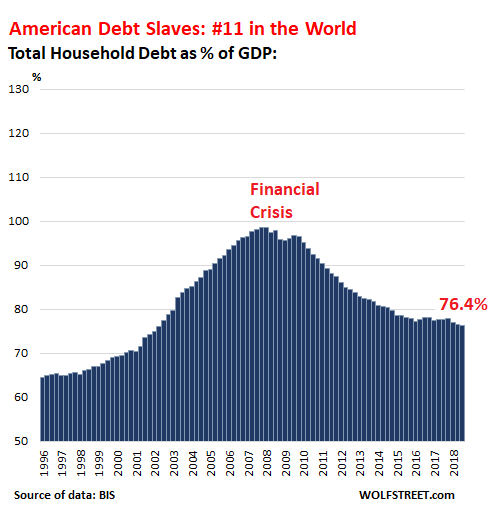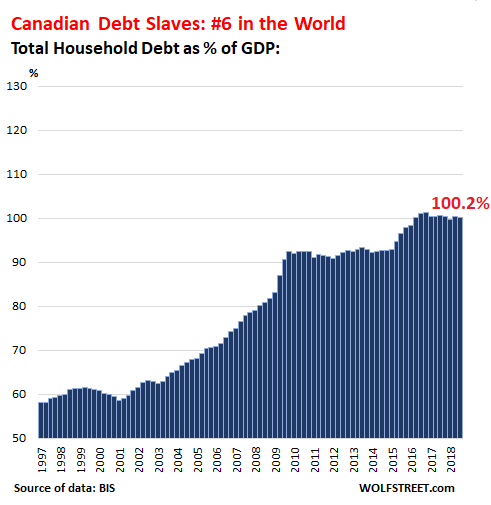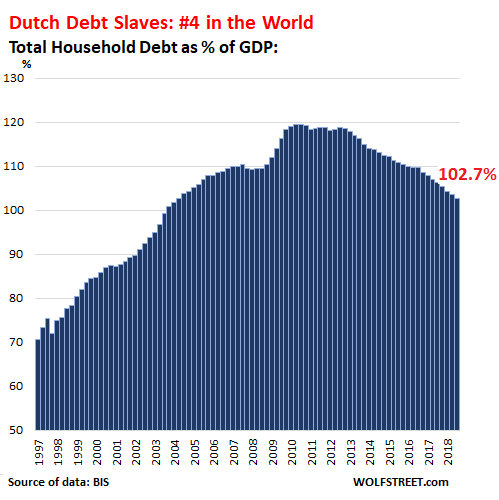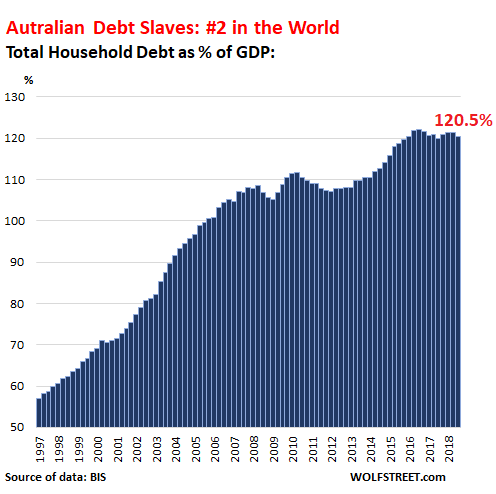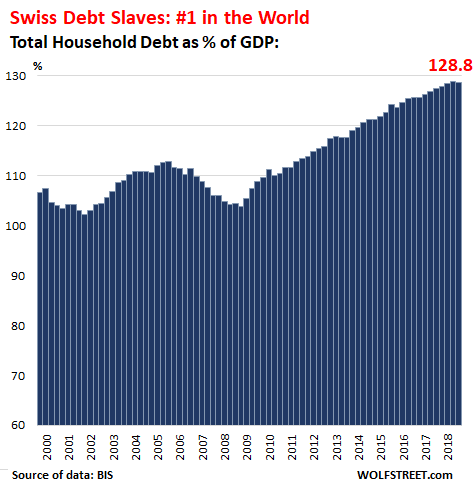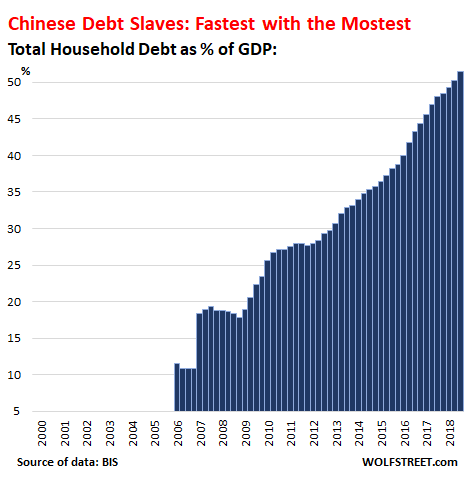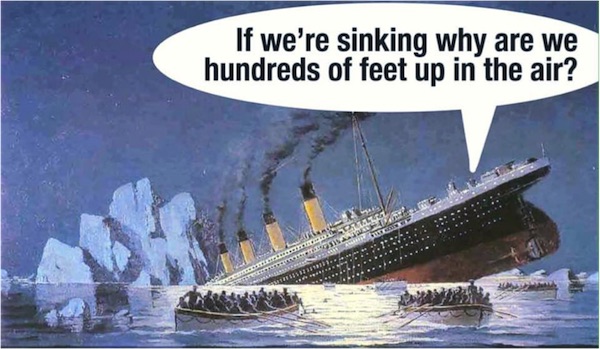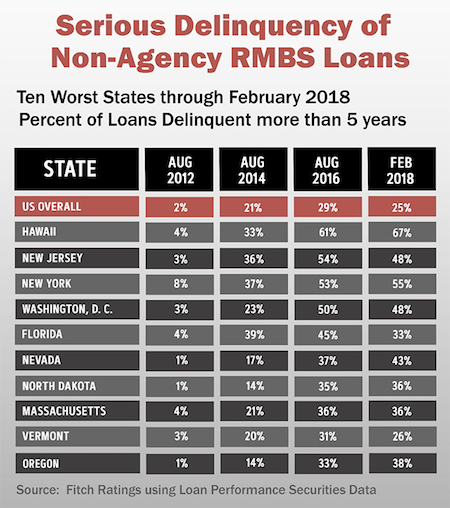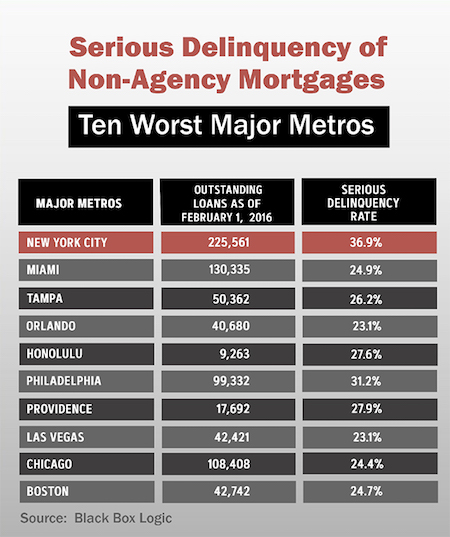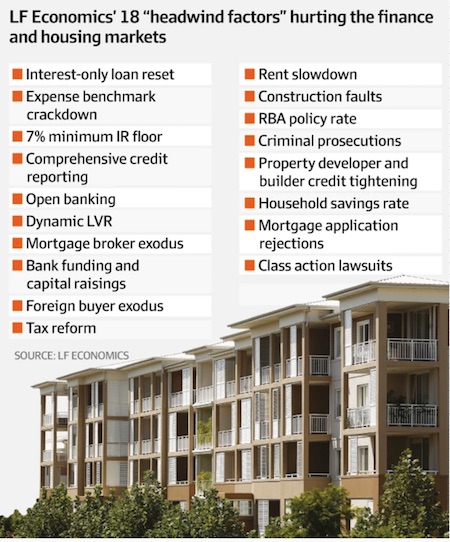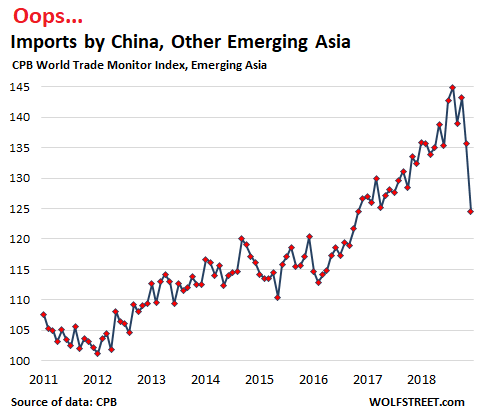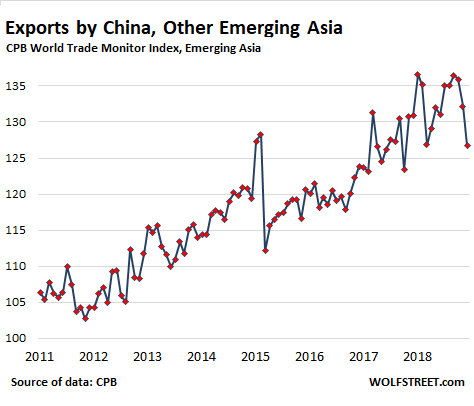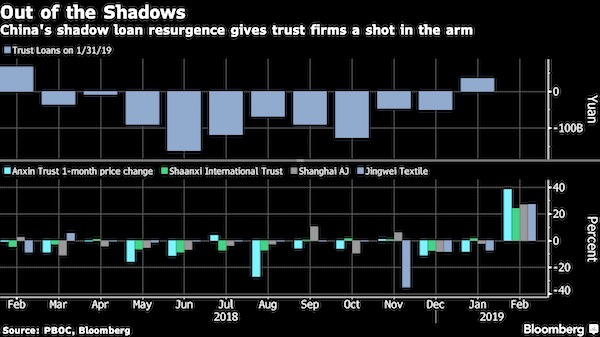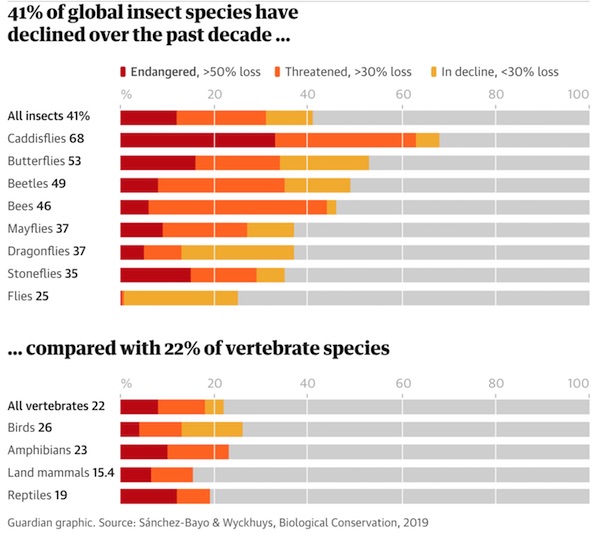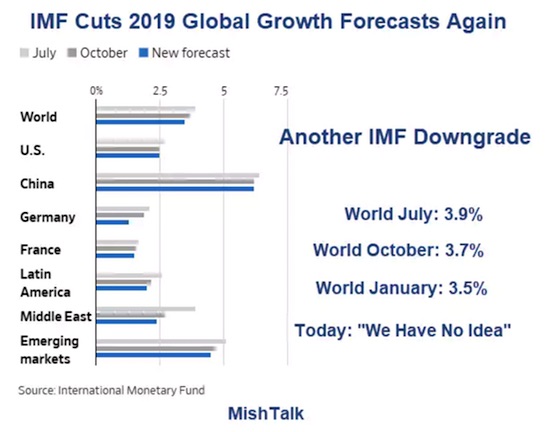
Georges Seurat Bathers at Asnières 1884

“To the Romans, virtues were things like fortitude, nobility and courage. Those virtues are true to the root of the word. When people think of virtues today they think of faith, hope, charity—which are not related to the word’s root meaning. ”
• Stupidity, Evil and the Decline of the US (Doug Casey)
Regrettably, the US is no longer the land of the free and the home of the brave. It’s become the land of whipped and whimpering dogs that roll over on their backs and wet themselves when confronted with authority. Now, why are Americans this way? Let me give you two reasons—though there are many more. First, there’s a simple absence of virtue. Let’s look at the word virtue. It comes from the Latin vir, which means manly, even heroic. To the Romans, virtues were things like fortitude, nobility and courage. Those virtues are true to the root of the word. When people think of virtues today they think of faith, hope, charity—which are not related to the word’s root meaning. These may pass as virtues in a religious sense.
But, outside a Sunday school, they’re actually vices. This deserves a discussion, because I know it will shock many. But I’ll save that for another time. An absence of virtues and the presence of subtle vices is insinuated throughout society. Worse, overt vices like avarice and especially envy are encouraged. Envy, in particular will become a big vice in the years to come. It’s similar to jealousy, but worse. Jealousy says “You have something I want; I’ll try to take it from you”. Envy says “You have something I want. If I can’t take it from you, I’ll destroy it, and hurt you if I can.” Jealousy and envy seem to motivate most Democratic Party presidential candidates. No wonder America is in rapid decline.
A second reason is unsound philosophy. The reigning philosophy in the US used to be based on individualism and personal freedom. It’s now statism and collectivism. But most people don’t think about philosophy—or even have a consistent worldview. More than ever, they do what seems like a good idea at the time. The average American has problems. But his rulers are something else again. Most of the people running the US are either knaves or fools. How do we know if we are dealing with a knave or a fool? In other words, are you dealing with somebody who is evil or just stupid? To give a recent, but classic, example, are you dealing with a Dick Cheney or a George W. Bush? Do you prefer the knavish Obama, or the knavish Biden? The foolish Trump, or the foolish Pence. Not much of a real choice anywhere…

Excerpt from A Brief History of Doom by Richard Vague.
• The Great Depression: A Real Estate Boom Gone Bust (Vague)
Contrary to the explanation found in many histories of the Great Depression, that calamity was a massive real estate boom gone bust. Residential construction more than tripled, and the housing boom was every bit as large as in the Great Recession on a per capita basis. In Manhattan more skyscrapers were built in the late 1920s than during any other comparable span in its history, and the skylines of most major U.S. cities are still testimony to the excesses of that era: “The Great Depression brought a level of misery rarely seen in American history. … [and] was a massive residential and commercial real estate crisis. The financial records of the 1920s, which have largely been overlooked, indelibly show this. During the 1920s, annual housing and commercial real estate construction almost tripled — and nearly all of it was financed by debt.
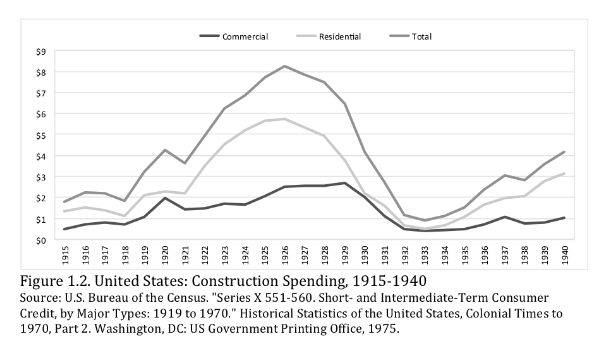
“This explosion in residential and commercial construction lending, aug≠mented by lending for utilities and stock purchases, created the euphoria of the Roaring Twenties, the jazz age of robust spending and celebration. Com≠panies used the new money from loans to expand and employ more people. “The acceleration in construction resulted in such extensive overbuilding that by the final years of the decade, before the stock market crash, thousands of newly erected office buildings, houses, and apartments sat empty. Office vacancy rates rose, and residential mortgage foreclosures nearly doubled in the final years of the decade.’ As in other cases, this crisis was inevitable be≠fore it was obvious. The only question, and the only area where the president and the Federal Reserve could still have a discretionary impact, was the length and severity of that correction. …
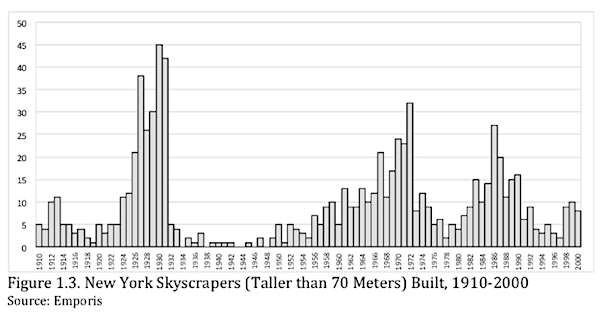
“The iconic structures of American skylines form the silhouette of the Great Depression: New York’s Chrysler Building, Empire State Building, and RCA Building; Chicago’s Merchandise Mart, Wrigley Building, and Tribune Tower; Philadelphia’s PSFS Building; Los Angeles’s City Hall; Dallas’s Cotton Exchange Building; Detroit’s Fischer Building; and Houston’s Gulf Building. These are enduring architectural feats of the 1920s, vestiges of the real estate eruption that came before the fall. Many were speculative projects, unsupported by actual real estate demand; begun toward the end of the 1920s, when loans were still available; and finished after the crash, when lenders had little choice but to make funds available to complete construction or else see their entire loan go bad. None was financially successful for its original investors. They remained partly or largely empty for a decade or more after completion, as would hundreds of others.”

“Everything every central banker has uttered last year was completely wrong. ”
Game over. The grand central bank experiment of the last 10 years has ended in utter and complete failure. The games of cheap money and constant intervention that have brought you record global debt to the tune of $250 trillion and record wealth inequality are about to embark on a new round of peddling blue meth again. Australia has already cut, so has India. The ECB is talking about it, markets are already pricing in multiple Fed cuts. The new global rate cutting cycle begins anew before the last one ever ended. Brace yourselves as no one, absolutely no one, can know how this will turn out. Absolutely staggering. We are witnessing a historic unraveling here. Everything every central banker has uttered last year was completely wrong.
Every projection they made over the last 10 years has been wrong. No wonder Jay Powell wants to toss the dot plot. It’s a public record of failure. Why place confidence in people who are staring at the ruins of the policies they unleashed on the world and are about to unleash again? All the distortions of 10 years of cheap money, debt, wealth inequality, zombie companies, negative debt, TINA, you name it, will all be further exacerbated by hapless and scared central bankers whose only solution to failure is to embark on the same cheap money train again. All under the banner to “extend the business cycle” at all costs. Never asking whether they should nor considering the consequences. But since they are not elected by the people and face zero consequences for failure they don’t have to consider the collateral damage they inflict.
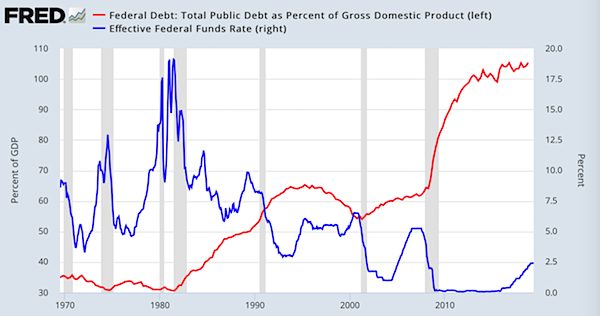

Take away their powers or else.
• ECB Floats Rate Cut Trial Balloon (ZH)
Last week’s non-committal ECB announcement caught markets by surprise, with the Euro jumping despite Mario Draghi’s best attempts to signal further easing even as he hinted at growing “downside risks”, prompting speculation that the ECB may have lost the last shreds of its credibility and leading Rabobank to publish a piece titled “Whatever It Takes” > “Whatever”.” Not used to being spurred by markets, Mario Draghi refused to take such aggression against his legacy quietly – especially as the former Goldman partner is set to retire shortly – and on Sunday, the European Central Bank used its traditional trial balloon conduit, Reuters, which reported that ECB policymakers “are open to cutting the ECB’s policy rate again” if economic growth weakens in the rest of the year and a strong euro hurts a bloc already bearing the brunt of a global trade war, clearly hoping that this jawboning would be sufficient to slam the euro (it wasn’t with the EURUSD basically unchanged from its Friday close).
As a reminder, last Thursday the ECB said that its interest rates would stay “at their present levels” until mid-2020 but President Mario Draghi added rate setters had started a discussion about a possible cut or fresh bond purchases to stimulate inflation. This conflicting message failed to convince some investors, who saw it as too tenuous a commitment to more stimulus, sending the euro rallying to a nearly 3 month high of $1.1347 against the U.S. dollar. So in an attempt to convince the skeptics, Reuters cited its traditionally anonymous “two sources” familiar with the ECB’s policy discussions, who said a rate cut was firmly in play if the bloc’s economy was to stagnate again after expanding by 0.4% in the first quarter of the year.
“If inflation and growth slow, then a rate cut is warranted,” said one of the sources, who requested anonymity because the ECB’s deliberations are confidential. The problem is that no matter what Draghi says, or “floats”, the market is concerned that the ECB is approaching the end of its credible ammo: with the ECB’s deposit rate already negative 40 bps and Germany’s yield hitting all time low. In this context, countering the euro’s strength, rather than lowering already rock-bottom borrowing costs, would be the main reason for a further cut to that deposit rate, one of the sources said.

Because the Tory members, and they’re wealthy, decide who is the next PM.
• Boris Johnson Pledges Major Tax Cut For Wealthy (Ind.)
Boris Johnson has pledged to cut income tax for three million higher earners, in a move that would cost £9.6bn a year. The current frontrunner in the Tory leadership contest said he would raise the threshold for the 40p tax band from £50,000 to £80,000 if he becomes prime minister. The move would be paid for through money currently set aside for no-deal Brexit planning and by rises in National Insurance. Mr Johnson said: “We should be raising thresholds of income tax – so that we help the huge numbers that have been captured in the higher rate by fiscal drag.” But the announcement sparked immediate criticism, including from senior Conservatives.
Nicky Morgan, the chair of the Commons Treasury committee, said: “The question for Boris is why is this a priority when you could be obviously lifting more people out of paying income tax – the lower rate taxpayers – or you could be give people receiving child benefit an extra £15 a week.” And Amber Rudd, the work and pensions secretary, said: “If you want to badge yourself as a One Nation Conservative, you focus on tax cuts and investment in infrastructure to help the lowest paid and the people in most difficulty in all parts of this country. That’s not what he’s doing.”

Can it be more severely poisoned yet?
• Boris Johnson Is ‘Poisoning Our Politics’ – Tory Leadership Rival (Ind.)
Conservative leadership contender Rory Stewart has launched a furious broadside at rival Boris Johnson, accusing the former foreign secretary of not being honest about his Brexit plans and challenging him to rule out suspending parliament to force no deal through. Speaking to The Independent, Mr Stewart said the leadership front-runner was trying to “out-Farage Farage” with an undeliverable plan to renegotiate Theresa May’s withdrawal agreement which was designed to usher in no-deal Brexit but would instead trigger a disastrous general election. And he blasted Johnson’s “swaggering machismo” over Brexit, which he said risked poisoning the UK’s relations with Europe.
The verbal assault came ahead of the formal launch of the contest to replace Ms May at No 10, with the official line-up of candidates to be confirmed after nominations close on Monday. Previously-fancied Michael Gove found his campaign mired in controversy over his admission of past cocaine use, with the environment secretary forced to fend off allegations of hypocrisy and deny having lied on security forms when entering parliament and travelling to the US. He dismissed as “foolish” suggestions that he might be barred from going to the US as prime minister.
Meanwhile, Mr Johnson – who picked up backing from cabinet ministers Chris Grayling and Alun Cairns and former Tory deputy chair James Cleverly – broke his campaign silence with a Sunday Times interview in which he said he would withhold Britain’s £39 billion Brexit divorce bill until Brussels agreed better terms for the UK’s withdrawal from the EU. The threat brought an immediate response from France, where a source close to President Emmanuel Macron said it would be regarded as “a failure of international commitments equivalent to a sovereign debt default” – something that could send the UK’s credit rating tumbling.

Guess they couldn’t get him with sex smears.
• Mike Pompeo Tells Jewish Leaders He Would ‘Push Back’ Against Corbyn (G.)
Labour has accused Donald Trump’s top official, Mike Pompeo, of trying to stop Jeremy Corbyn becoming prime minister, after he was caught on tape telling Jewish leaders that he would “push back” against the party’s leadership. In a recording leaked to the Washington Post, the US secretary of state was asked what he would do if Corbyn were to be elected as prime minister, after sustained criticism over Labour’s handling of accusations of antisemitism within the party. The questioner said: “Would you be willing to work with us to take on actions if life becomes very difficult for Jews in the UK?” In response, Pompeo appeared to suggest that he would seek to intervene in the debate before Corbyn had a chance to become prime minister.
“It could be that Mr Corbyn manages to run the gauntlet and get elected,” he said on the recording. “It’s possible. You should know, we won’t wait for him to do those things to begin to push back. We will do our level best. It’s too risky and too important and too hard once it’s already happened.” A Labour spokesman said: “President Trump and his officials’ attempts to decide who will be Britain’s next prime minister are an entirely unacceptable interference in the UK’s democracy.” He added that the party was “fully committed to the support, defence and celebration of the Jewish community and is implacably opposed to antisemitism in any form”.
Pompeo’s comments emerged after Trump turned down Corbyn’s request for a meeting during his state visit to the UK last week, saying the leader was “somewhat of a negative force”. Corbyn joined protests outside Trump’s press conference with Theresa May, where he pledged to oppose the US president’s drive for greater access for US health companies to NHS contracts. The comments come at a time when Corbyn’s team are nervous about the latest attempts to oust him from within the party over the issues of antisemitism and Brexit, after several senior figures came out in support of a second referendum.

No sex smears for Tulsi either, but Russia might do.
• Tulsi Gabbard Pushes No War Agenda – And The Media Is Out To Get Her (SCF)
Tulsi Gabbard could well be the only genuine antiwar candidate that might truly be electable in the past fifty years, and that is why the war party is out to get her. Two weeks ago, the Daily Beast displayed a headline: “Tulsi Gabbard’s Campaign Is Being Boosted by Putin Apologists.” The article also had a sub-headline: “The Hawaii congresswoman is quickly becoming the top candidate for Democrats who think the Russian leader is misunderstood.” The obvious smear job was picked by ABC’s George Stephanopoulos, television’s best known Hillary Clinton clone, who brought it up in an interview with Gabbard shortly thereafter. He asked whether Gabbard was “softer” on Putin than were some of the other candidates.
Gabbard answered: “It’s unfortunate that you’re citing that article, George, because it’s a whole lot of fake news.” Politico the reported the exchange and wrote: “’Fake news’ is a favorite phrase of President Donald Trump…,” putting the ball back in Tulsi’s court rather than criticizing Stephanopoulos’s pointless question. Soon thereafter CNN produced its own version of Tulsi the Russophile, observing that Gabbard was using a Trump expression to “attack the credibility of negative coverage.” Tulsi responded “Stephanopoulos shamelessly implied that because I oppose going to war with Russia, I’m not a loyal American, but a Putin puppet. It just shows what absurd lengths warmongers in the media will go, to try to destroy the reputation of anyone who dares oppose their warmongering.”
tulsi mocking george stephanopoulos is one of the greatest things you'll hear from any of the candidates pic.twitter.com/aIBxWyZ5t1
— Starrchild (@hexen220) June 9, 2019

Impressive crowds.
• One Million March In Hong Kong To Protest China Extradition Bill (R.)
Organizers said the turnout outstripped a demonstration in 2003 when 500,000 hit the streets to challenge government plans for tighter national security laws. Those laws were later shelved and a key government official forced to resign. Sunday’s outpouring was already raising the pressure on the administration of Hong Kong Chief Executive Carrie Lam and her official backers in Beijing. “She has to withdraw the bill and resign,” veteran Democratic Party lawmaker James To told crowds outside the city’s parliament and government headquarters on Sunday night. “The whole of Hong Kong is against her.” After To spoke, thousands were still arriving, having started the march five hours earlier, filling four lanes of a major thoroughfare.
Some sat in a nearby park singing “Hallelujah” while police increased their numbers around the area. Lam had yet to comment on the rally. The demonstration capped weeks of growing outrage in the business, diplomatic and legal communities, which fear corrosion of Hong Kong’s legal autonomy and the difficulty of ensuring basic judicial protections in mainland China. The protest descended into violence in the early hours of Monday as several hundred protesters clashed with a similar number of police outside the city’s parliament. Protesters charged police lines to try to force their way into the Legislative Council building, and police charged back, using pepper spray, after warning the protesters. The standoff ended in the early hours of Monday.

What say you, Xi?
• Hong Kong Plunged Into Political Crisis (R.)
Riot police surrounded Hong Kong’s parliament early on Monday after what had been a peaceful million-strong protest against an extradition bill descended into running clashes between police and protesters. Several hundred riot police armed with batons, shields, tear gas guns and pepper spray sealed off the Legislative Council as a similar number of protesters charged their lines shortly after midnight, Reuters witnesses said. Police used batons and fired pepper spray at protesters, who still managed to close off part of a nearby road. Several people on both sides appeared to be injured, and ambulances were called. Metal barriers were left twisted and torn in the clashes.
The Legislative Council is where debates will start on Wednesday to pass a new government bill that will allow suspects wanted in mainland China to be sent across the border for trial. Earlier on Sunday, hundreds of thousands had jammed Hong Kong’s streets to protest the bill in the biggest demonstration in years. Many said they feared it put the city’s vaunted legal independence at risk. The rallies — and the violence — plunge the global financial hub into a fresh political crisis, with marchers and opposition leaders demanding the bill be shelved and that the city’s Beijing-backed Chief Executive Carrie Lam resign. After seven hours of marching, organisers estimated 1,030,000 people took part, far outstripping a demonstration in 2003 when half that number hit the streets to successfully challenge government plans for tighter national security laws.

“Travelers aren’t merely scared of the 737 Max, they’re terrified of it..”
• Boeing 737 Max Seen as ‘Airplane Non Grata’ by Wary Travelers (BBG)
U.S. airlines have their work cut out for them in trying to coax frightened travelers back onto Boeing Co.’s 737 Max once a worldwide grounding ends. At least 20% of U.S. travelers say they will definitely avoid the plane in the first six months after flights resume, according to a study led by consultant Henry Harteveldt. More than 40% said they’d be willing to take pricier or less convenient flights to stay off the Max. A separate UBS Group AG survey found that 70% would hesitate today to book a flight on Boeing’s best-selling jet. “Travelers aren’t merely scared of the 737 Max, they’re terrified of it,” Harteveldt, president of Atmosphere Research Group, said in the report, which was released Tuesday.
“The 737 Max is, for now, an ‘airplane non grata’ — a plane passengers do not want to fly.” The surveys underscore the challenge looming for Boeing as it seeks to regain public trust after two deadly crashes and a global flying ban that’s nearing the three-month mark. Boeing is finalizing a software fix for a flight-control system malfunction linked to the accidents, as well as proposed new pilot training. Regulators in the U.S. and other countries say there’s no timeline for when the plane will resume flights. Only 14% of U.S. passengers would definitely fly on a 737 Max within six months of its return, according to the online study for Atmosphere of 2,000 U.S. airline passengers from April 27 to May 1.

They have to fire the CEO and many others. Nader is not going away.
• Boeing Used To Getting Its Way, Grip On Congress Is Legendary (Ralph Nader)
The Boeing-driven FAA is rushing to unground the notorious prone-to-stall Boeing 737 MAX (that killed 346 innocents in two crashes) before several official investigations are completed. Troubling revelations might keep these planes grounded worldwide. The FAA has a clearly established pro-Boeing bias and will likely allow Boeing to unground the 737 MAX. We must demand that the two top FAA officials resign or recuse themselves from taking any more steps that might endanger the flying public. The two Boeing-indentured men are Acting FAA Administrator Daniel Elwell and Associate FAA Administrator for Aviation Safety Ali Bahrami. Immediately after the crashes, Elwell resisted grounding and echoed Boeing claims that the Boeing 737 MAX was a safe plane despite the deadly crashes in Indonesia and Ethiopia.
Ali Bahrami is known for aggressively pushing the FAA through 2018 to further abdicate its regulatory duties by delegating more safety inspections to Boeing. Bahrami’s actions benefit Boeing and are supported by the company’s toadies in the Congress. Elwell and Bahrami have both acquired much experience by going through the well-known revolving door between the industry and the FAA. They are likely to leave the FAA once again for lucrative positions in the aerospace lobbying or business world. With such prospects, they do not have much ‘skin in the game’ for their pending decision.
[..] Boeing has about 5,000 orders for the 737 MAX. It has delivered less than 400 to the world’s airlines. From its CEO, Dennis Muilenburg to its swarms of Washington lobbyists, law firms, and public relations outfits, Boeing is used to getting its way. Its grip on Congress – where 300 members take campaign cash from Boeing – is legendary. Boeing pays little in federal and Washington state taxes. It fumbles contracts with NASA and the Department of Defense but remains the federal government’s big vendor for lack of competitive alternatives in a highly concentrated industry.
[..] Time is not on the side of the 737 MAX 8. A comprehensive review of the 737 MAX’s problems is a non-starter for Boeing. Boeing’s flawed software and instructions that have kept pilots and airlines in the dark have already been exposed. New whistleblowers and more revelations will emerge. More time may also result in the Justice Department’s operating grand jury issuing some indictments.

One of Melzer’s many interviews. Where is the UN suppoort for him?
• Chris Hedges Talks To UN Special Rapporteur About Assange (RT)
Chris Hedges discusses with UN Special Rapporteur on Torture Nils Melzer the conditions of Julian Assange’s detention, his psychological and physical health as well as the judicial proceedings against the WikiLeaks founder.







